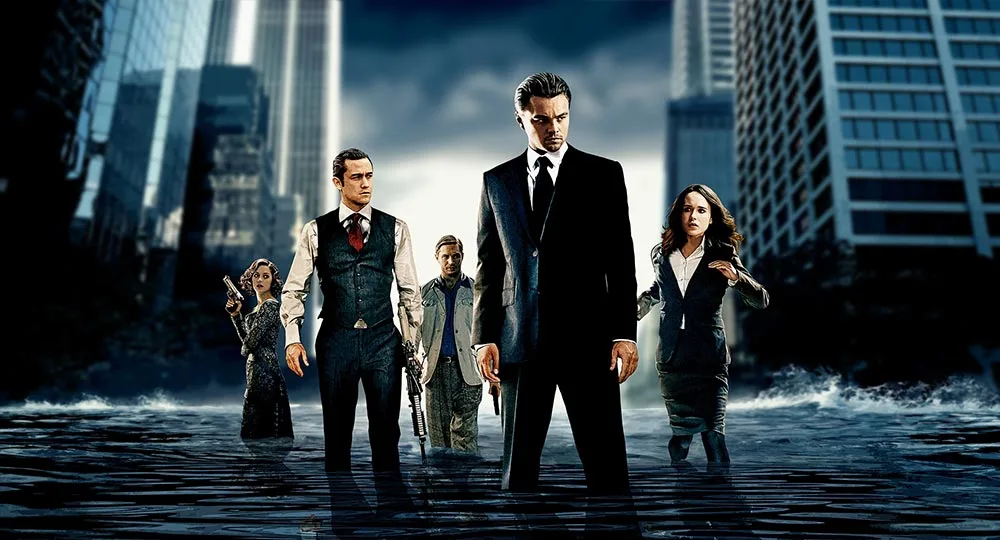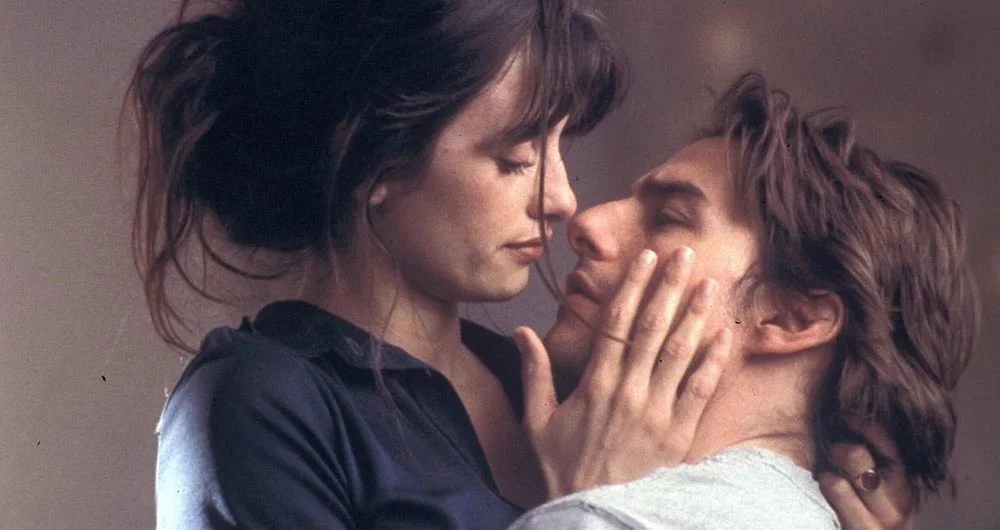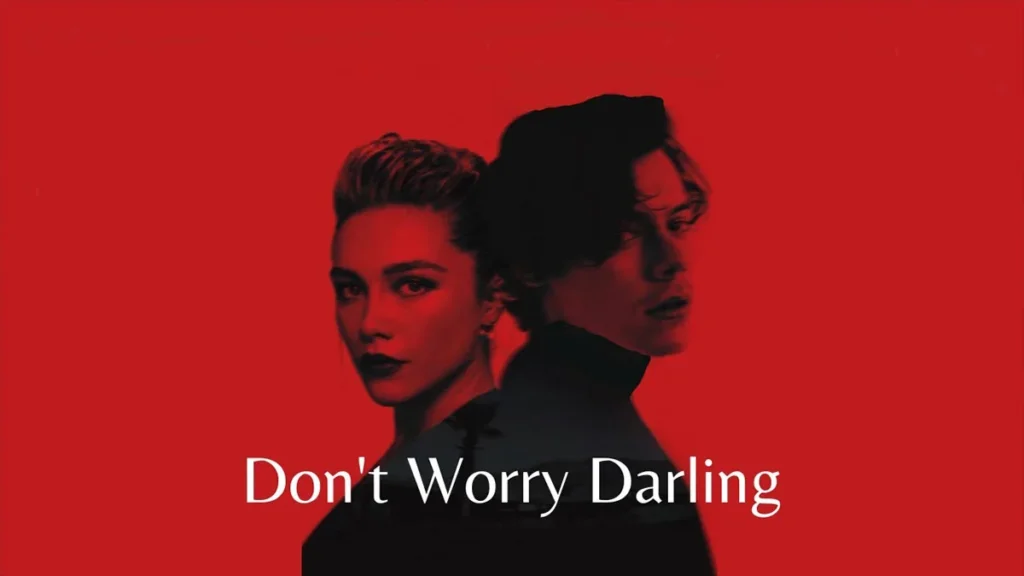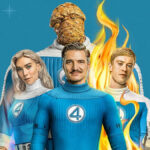If you were captivated by the psychological twists and turns of Olivia Wilde’s “Don’t Worry Darling,” you’re in for a treat. We’ve curated a list of the 15 best movies like “Don’t Worry Darling” that will keep you on the edge of your seat, questioning everything you see. From classic mind-benders to modern masterpieces, these films explore the blurred lines between reality and illusion, the dangers of conformity, and the struggle to break free from oppressive systems.
Prepare to have your perception challenged as we dive into a world of simulated realities, memory manipulation, and characters grappling with the nature of their existence. Whether you’re a fan of sci-fi thrillers, psychological horror, or thought-provoking dramas, this list has something for everyone. So grab your popcorn, dim the lights, and get ready to embark on a cinematic journey that will leave you questioning what’s real long after the credits roll.
The Truman Show (1998)

Directed by Peter Weir and starring Jim Carrey, The Truman Show tells the story of Truman Burbank, a man who discovers his entire life is actually a reality TV show. Everyone he knows, including his wife and best friend, are actors, and his hometown is an elaborate set. As Truman starts to question his reality, the show’s producers go to extreme lengths to keep him from discovering the truth.
The Truman Show is a brilliant satire of media manipulation and a prescient commentary on reality TV. Jim Carrey gives one of his best performances, balancing comedy and pathos as a man whose whole life is a lie. The film raises thought-provoking questions about free will, voyeurism, and the power of media to shape our perceptions of reality.
The Stepford Wives (1975)

Based on Ira Levin’s novel, The Stepford Wives is a chilling sci-fi thriller about a suburban town where all the women are eerily perfect housewives. When Joanna and her husband move to Stepford, she befriends Bobby, another new arrival who shares her feminist views. But one by one, the women of Stepford start to change, becoming docile, subservient, and obsessed with housework. Joanna realizes something sinister is going on and tries to escape before it’s too late.
The Stepford Wives is a disturbing allegory for the backlash against second-wave feminism and a sharp critique of gender roles and conformity. While the 2004 remake leans more into comedy, the original is a slow-burn horror film with a creeping sense of dread as Joanna uncovers the dark secret at the heart of Stepford.
Get Out (2017)

Jordan Peele’s directorial debut Get Out is a brilliant social thriller that follows Chris, a young black man who goes to meet his white girlfriend Rose’s family for the first time. At first, the family seems overly accommodating, but Chris soon notices strange behavior from the estate’s black staff. He uncovers a sinister conspiracy to lure black people and imprison their minds while using their bodies as vessels.
Get Out works on multiple levels – as a gripping psychological horror film, a sharp commentary on liberal racism, and a dark metaphor for the appropriation of black bodies and culture. Daniel Kaluuya’s lead performance anchors the film as Chris slowly puts the pieces together and fights to escape his terrifying predicament.
Pleasantville (1998)

Pleasantville stars Tobey Maguire and Reese Witherspoon as teenage siblings transported into a 1950s sitcom. At first, the town of Pleasantville is a quaint, innocent world of traditional values and gender roles. But as the siblings introduce new ideas, the town transforms from black-and-white to color, and the residents start embracing change, creativity and personal freedom.
Written and directed by Gary Ross, Pleasantville uses its high-concept premise to deliver a moving coming-of-age story and a clever commentary on nostalgia, censorship and societal repression. The film’s striking visual design shows the town blossoming into life as the characters escape the confines of their TV reality.
Shutter Island (2010)

Directed by Martin Scorsese, Shutter Island stars Leonardo DiCaprio as Teddy Daniels, a U.S. Marshal investigating a disappearance at a remote psychiatric facility. As Teddy digs deeper, he uncovers dark secrets about the island’s true purpose and begins to question his own sanity. Is he really a Marshal, or a patient himself? The truth is more disturbing than he could have imagined.
Shutter Island is a mind-bending psychological thriller that keeps you guessing until the very end. Scorsese creates an atmosphere of paranoia and dread, trapping you inside Teddy’s fracturing psyche. The film is a haunting exploration of trauma, guilt and the blurred lines between reality and delusion.
Eternal Sunshine of the Spotless Mind (2004)

Michel Gondry’s Eternal Sunshine of the Spotless Mind stars Jim Carrey and Kate Winslet as Joel and Clementine, a couple who erase each other from their memories after a painful breakup. But as Joel’s memories of Clementine start to disappear, he realizes he wants to hold onto them and goes on a surreal journey through his mind to save their relationship.
Written by Charlie Kaufman, Eternal Sunshine is a poignant, inventive romance that asks profound questions about love, memory and identity. The fragmented, non-linear structure brilliantly depicts the fluid nature of memory, and Carrey and Winslet have heartbreaking chemistry as a couple who can’t live with or without each other.
Inception (2010)

Christopher Nolan’s mind-bending sci-fi thriller Inception stars Leonardo DiCaprio as Cobb, a thief who enters people’s dreams to steal their secrets. For his final job, Cobb must plant an idea in his target’s subconscious, requiring him to go deeper into dreams within dreams. But Cobb is haunted by the memory of his dead wife Mal, whose presence threatens to sabotage the entire mission.
Inception is a dazzling feat of filmmaking, with Nolan creating a labyrinthine plot and eye-popping visuals to depict the world of dreams. The film grapples with weighty themes of guilt, loss and the power of ideas, anchored by DiCaprio’s tortured performance. The ambiguous, thought-provoking ending invites endless interpretation and debate.
Vanilla Sky (2001)

Cameron Crowe’s Vanilla Sky stars Tom Cruise as David Aames, a wealthy playboy whose life is turned upside down after a car accident leaves him disfigured. As David tries to piece together what happened, he’s haunted by strange visions and memories that blur the lines between fantasy and reality. Is his idyllic romance with Sofia (Penélope Cruz) even real, or part of an elaborate dream?
A remake of the Spanish film Open Your Eyes, Vanilla Sky is a trippy, mind-bending puzzle box of a movie. Crowe keeps you off-balance with shifting perspectives and surreal imagery, building to a stunning revelation about the nature of David’s existence. It’s an ambitious, polarizing film anchored by one of Cruise’s most vulnerable and complex performances.
The Matrix (1999)

The Wachowskis’ groundbreaking sci-fi action film The Matrix stars Keanu Reeves as Neo, a hacker recruited by a group of rebels who reveal a shocking truth: the world as he knows it is a simulated reality created by machines to keep humans docile while harvesting their bodies for energy. Neo joins the rebels to battle the machines and free humanity from the Matrix.
With its mind-blowing “bullet time” effects and sleek cyberpunk aesthetic, The Matrix was a game-changer for sci-fi cinema. But beyond the dazzling visuals, it’s a thought-provoking exploration of free will, perception and the nature of reality. The film’s central idea – that our world is an illusion – has inspired endless analysis and interpretation.
Dark City (1998)

Alex Proyas’ neo-noir sci-fi thriller Dark City stars Rufus Sewell as John Murdoch, a man who wakes up with no memory and finds himself accused of murder. As John tries to unravel the mystery, he discovers that the city is controlled by a race of pale, telepathic strangers who can alter reality and manipulate people’s memories. John must find a way to stop them before they erase his identity completely.
Dark City is a stylish, atmospheric mind-bender with a killer premise and stunning visuals. Proyas creates a haunting, expressionistic cityscape that shifts and changes like a waking dream. The film grapples with heady themes of memory, identity and the nature of humanity, with a gut-punch ending that recontextualizes everything that came before.
Donnie Darko (2001)

Richard Kelly’s cult classic Donnie Darko stars Jake Gyllenhaal as the title character, a troubled teenager who narrowly escapes death when a jet engine crashes into his bedroom. Afterward, Donnie is plagued by visions of a man in a monstrous rabbit costume who tells him the world will end in 28 days. As Donnie investigates the strange occurrences around him, he uncovers a mind-bending mystery involving time travel, alternate realities and fate.
Donnie Darko is a trippy, ambiguous film open to endless interpretation. Is Donnie a paranoid schizophrenic, a time traveler, or something else entirely? Kelly keeps you guessing with surreal imagery, cryptic dialogue and a fractured narrative that loops back on itself. It’s a haunting meditation on teenage alienation, mental illness and the illusion of free will.
eXistenZ (1999)

David Cronenberg’s bizarre sci-fi thriller eXistenZ stars Jennifer Jason Leigh as Allegra Geller, a famous game designer testing out her new virtual reality game eXistenZ with a focus group. When an assassin strikes, Allegra goes on the run with security guard Ted Pikul (Jude Law). As they enter the game, the lines between reality and illusion start to blur, and they’re no longer sure what’s real and what’s part of eXistenZ.
eXistenZ is a mindf**k in the best possible way, with Cronenberg gleefully blurring the boundaries between the organic and the artificial. With its fleshy, pulsating game pods and Freudian imagery, the film is a queasy meditation on our relationship with technology and the increasingly porous boundaries of the self in the digital age.
Memento (2000)

Christopher Nolan’s breakthrough film Memento stars Guy Pearce as Leonard, a man with anterograde amnesia on a quest to find his wife’s killer. Unable to form new memories, Leonard relies on Polaroids, tattoos and notes to himself to piece together the clues. But as the film unfolds in reverse chronological order, we start to question the reliability of Leonard’s memories and motives.
Memento is a brilliant deconstruction of the revenge thriller that keeps you constantly off-balance. By putting us in Leonard’s shoes, Nolan makes us question the very nature of memory, identity and the stories we tell ourselves to make sense of our lives. It’s a stunning showcase for his narrative ingenuity and ability to find the humanity in high-concept premises.
Solaris (1972)

Andrei Tarkovsky’s Soviet sci-fi classic Solaris stars Donatas Banionis as Kris Kelvin, a psychologist sent to investigate strange occurrences on a space station orbiting the mysterious planet Solaris. There, he finds the crew haunted by “visitors” that appear to be manifestations of their deepest desires and regrets. When Kris’s dead wife Hari appears, he’s forced to confront his own grief and guilt.
Solaris is a haunting, meditative film that uses the trappings of science fiction to explore the depths of the human psyche. Tarkovsky’s long, hypnotic takes and dreamlike imagery create a sense of dislocation and unease, as the characters grapple with the nature of reality and the persistence of memory. It’s a profound exploration of love, loss and the limits of human understanding.
Blade Runner (1982)

Ridley Scott’s neo-noir sci-fi classic Blade Runner stars Harrison Ford as Rick Deckard, a “blade runner” tasked with hunting down rogue androids known as “replicants” in a dystopian future Los Angeles. As Deckard pursues his targets, he begins to question the ethics of his job and the line between human and machine. Is he a replicant himself? The truth is ambiguous and unsettling.
With its rain-soaked cityscapes, neon-drenched visuals and Vangelis’ haunting score, Blade Runner is a stunningly immersive film that creates a fully-realized world. But beyond the surface style, it’s a profound meditation on memory, identity and what it means to be human. The film’s central question – how can we be sure of our own reality? – resonates more than ever in our increasingly virtual world.
These 15 movies all explore similar themes as Don’t Worry Darling – the blurred lines between reality and illusion, the dangers of conformity and complacency, and the struggle to break free from oppressive systems of control. Whether through science fiction, horror, thriller or romance, they use their high-concept premises to ask profound questions about the human condition and the nature of existence itself. If you enjoyed the mind-bending twists and social commentary of Don’t Worry Darling, these films offer even more to unpack and discuss.






